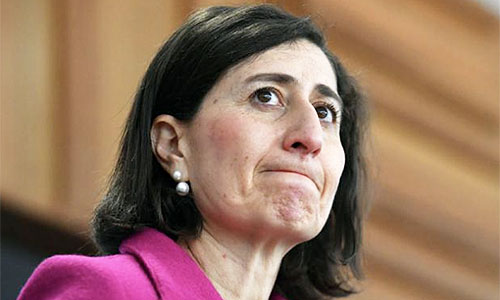The Institute for Fiscal Studies has published its yearly Green Budget, weeks ahead of Chancellor Rachel Reeves’s first fiscal event. It’s grim reading, for both the government and the public. For Labour to make good on its promise to avoid ‘austerity’, taxes are going to need to go up significantly: by £25 billion, the IFS’s reports, and that’s just to ‘keep spending rising with national income.’ That’s before the government tackles its pledges to invest. And that doesn’t rule out that ‘further tax rises or spending cuts could be required before the end of the parliament’.
Where will the cash come from?
Despite speculation that Reeves is changing the fiscal rules to enable her Treasury to borrow billions more, that will only release cash for capital investment. Her pledge to fund day-to-day spending through revenue remains the same – which will require Reeves either to scale back her spending plans or hike taxes to find the revenue. Having ruled out the former, the IFS reports that the UK is looking at a more transformative, even bigger tax-hiking Budget than Gordon Brown delivered in 1997 – to the tune of £14 billion – or George Osborne delivered in 2010 – of £13 billion.
Many of the fiscal problems Reeves faces were well established before the election. Whoever found themselves in Downing Street for the course of this Parliament was going to have to tackle the public service black hole identified long before polling day. It will now cost ‘a further £17 billion (or £47 billion in total) in 2028–29’, according to the IFS, to fund non-ring fenced areas in line with national income. Higher debt-servicing payments, which last year cost the UK double its defence budget, are also a worry for the Chancellor.
Then there are the costs that Labour increased weeks after the party entered Downing Street, including £10 billion of inflation-busting public sector pay raises. Far from a one-off cost, the IFS estimates that ‘just to fund this year’s pay settlements and avoid future cuts Rachel Reeves would need to top up day-to-day spending by some £30 billion above her predecessor’s plans by 2028–29.’
During the campaign, the relatively small tax announcements Labour announced were set to take the tax burden – already at a post-war high – from 36.5 per cent in 2024/25 to 37.4 per cent by the end of this parliament. That’s 0.3 percentage points higher than the last forecast from the Office for Budget Responsibility, which shows the tax burden rising to 37.1 per cent by 2028-29. But according to the Green Paper this morning, the £25 billion Reeves needs to keep the current show on the road will take the tax burden even higher, to 37.9 per cent.
There was no doubt that Labour had bigger plans for tax increases than the party was sharing in the run-up to polling day. But where will the cash come from? IFS director Paul Johnson notes that the Chancellor is ‘tightly constrained by her pledges not to raise the main rates of income tax or corporation tax, or to increase National Insurance or VAT at all.’ As I wrote on Coffee House this week, the Treasury is reportedly struggling to fully implement the few, relatively small tax pledges the Labour party made ahead of the election; it fears that the changes may lead to shifts in behaviour that could lose the Treasury cash overall.
Raising taxes is, of course, another form of austerity: avoiding spending cuts doesn’t mean avoiding the label altogether. But the Green Budget is very clear that it’s going to be very difficult for the Chancellor not to make at least some decisions around the spending review, even if taxes are hiked significantly. CiTi investment bank, which partners with the IFS for the Green Budget, forecasts that the Budget surplus for 2028–29 could be around £17 billion, which would ‘still leave spending on some public services falling’. With demand only growing in protected areas like healthcare, the Chancellor is going to face the age-old problem of where to use the extra headroom, with pressure (always) to top up the NHS or protect pensions.
‘It is easy to think that we face a short-term challenge somewhat artificially created by a particular set of arbitrary fiscal rules,’ says Johnson this morning. ‘That would be a mistake. Pressures on health and pension spending will continue to increase, and revenues from fuel and tobacco duties will fall.’ Yet Labour have a lot of legacy spending problems to make good on, and some they have already pledged themselves. Where the cash comes from remains uncertain, but there is no doubt that this is going to be a significant Budget – and a testing one, for both the government and the taxpayer.









